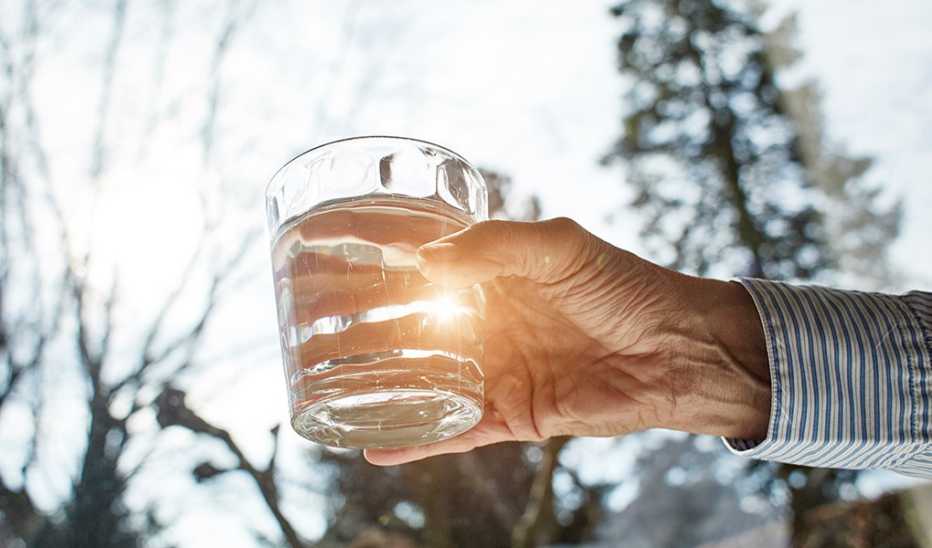Challenges


Quick Win
Getting enough H2O is essential for your brain and body to function well.
Try This Today
- Monitor bathroom breaks. The idea that everyone should drink eight glasses of water per day has been debunked by recent research. A better approach is to use trips to the bathroom to check on your body’s hydration. In general, if you're getting enough water, your urine should range in color from nearly clear to light yellow. Dark urine can be a sign of dehydration.
- Caffeinated drinks count — in moderation. Despite what you may have heard, tea and coffee probably won’t dehydrate you as long as you keep it to one to three cups a day.
- Think beyond the drink. Contribute to your water intake by eating foods with a high water content, such as melons, lettuce and soup.
Why
Water is vital to your health, and not getting enough can cause unclear thinking and mood changes, according to the Centers for Disease Control and Prevention. A meta-analysis of 33 studies involving 413 adults published in 2018 in Medicine & Science in Sports & Exercise concluded that dehydration can impair cognitive performance, especially executive function, motor coordination and attention. So, how many glasses should you drink each day? Your age, sex, body size, the climate you live in and the amount of exercise you get all play a role in your water needs. It can be helpful to have some guidelines, however, so the Academy of Nutrition and Dietetics suggests that women aim for about nine cups of fluid per day and men get about 13 cups. Just keep in mind that those are ballpark figures, not prescriptions.











More From Staying Sharp
Vitamin E May Increase Your Brain Health
Top up your vitamin E levels with these six foods that support cognitive health
Grill Out Tonight!
When the weather is nice, take the cooking outdoors
Join an Online Hobby Group
It's never been easier to connect with people who share your interests